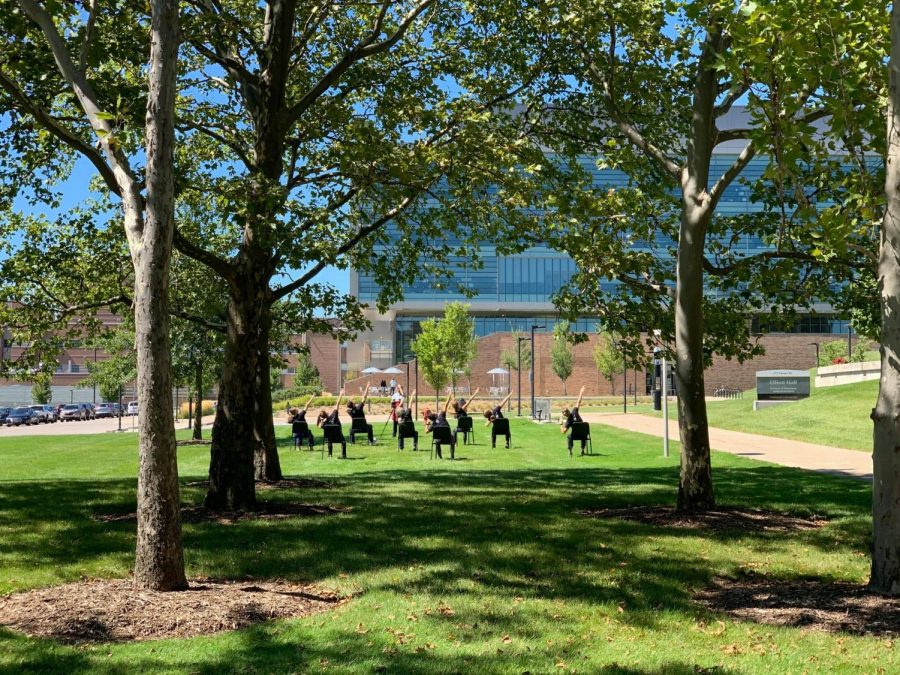‘Take Root Dance Company’ holds PD classes on campus
Photo Courtesy of The School of Music, Theatre and Dance.
The “Take Roots Dance Company” instructors leading a class outside of Varner and Elliott Halls.
The outdoors of Oakland University has turned into the new home of “Take Root Dance,” a group helping people affected by Parkinson’s Disease (PD).
The “Take Root Dance Company” is a nonprofit that teaches classes at OU, Henry Ford Detroit, St. Joseph Mercy Oakland and The Older Persons’ Commission in Rochester.
The company started in 2014 and Ali Woerner, an associate professor of dance at OU, created their PD program a year after.
“I started the dance for Parkinson’s Disease program because my parents’ best friend is living with PD and he had taken a dance class and loved it,” Woerner said.
Woerner went to Brooklyn, New York to prepare and train for the classes. After she completed her training, the PD dance program started at OU with classes once a month.
“Take Root” has three trained faculty on their team, four interns at Oakland and many volunteer emails.
“It’s quite a force that has become this program and I think it must be because it makes everybody feel so good, ” she said.
“Take Roots” is a resident at OU so it’s easier for any students to volunteer and help with the classes.
“We’ve had students from all over different disciplines throughout Oakland come in and volunteer. We’ve had dance majors, psychology majors, physical therapy majors, nursing — you name it.” Woerner said.
The classes run four times a week all year and they are an hour long. No one has to be a good dancer to take these classes.
The PD classes are joyful and fun — a safe space where everyone’s boundaries can be down, according to Woerner.
The participants with PD range from any stage — some people show little symptoms and move well and some confined to a wheelchair.
The volunteers are first directed to the Take Roots website for further information, and on class day they meet with Woerner to get more information on who they’re working with before the class starts. An important thing that volunteers are told is to never assume someone needs help.
“They’ve been living with this disease for awhile, they know what they need [help with] and what they don’t,” she said.
The classes will work up a sweat for everyone since it’s a full workout.
“Even the volunteers that come are like ‘oh this is not what I thought — I’m actually sweating,’” Woerner said.
The program classes were moved outside onto campus and virtual because of COVID-19. They now take place once a month, and get sent to their mailing lists and hospitals that “Take Root” works at.
“Now we’re on video but we send out a new class every month and then they [people with PD] can use it throughout the month and by the time they’re ready for a new class, we’re sending out a new one,” she said.
Anyone interested in becoming a volunteer when classes resume in person or knows someone that might be interested in taking the classes can find more information on their website.




